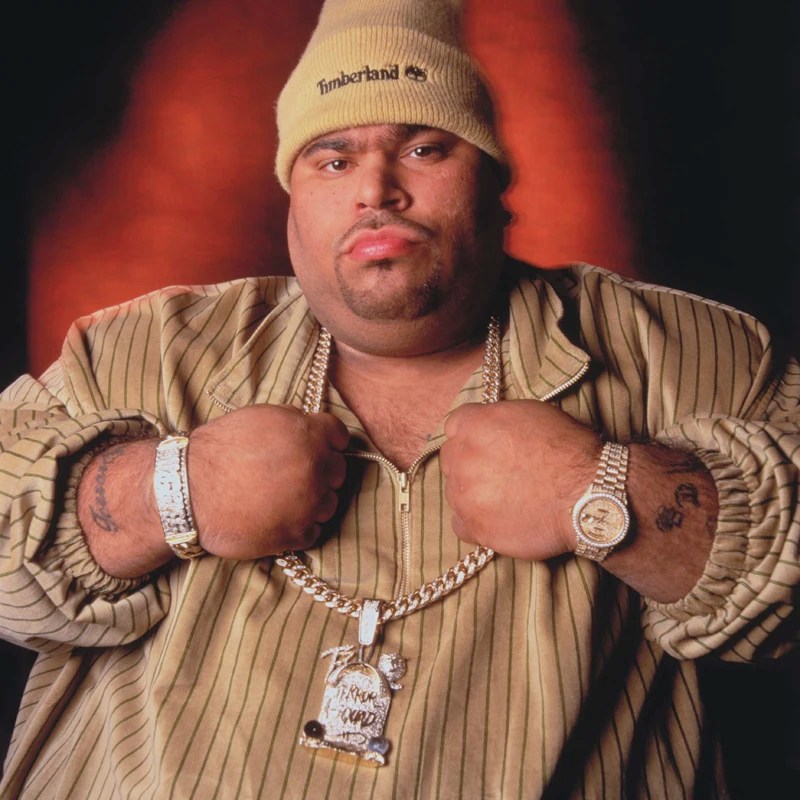Big Pun, also known as Big Punisher, is one of the most influential figures in the history of hip-hop, and his untimely death has left a significant mark on the genre. This article will explore the year of Big Pun's death, his career, and the impact he had on music and culture. Born as Christopher Rios, Big Pun's story is one of talent, struggle, and a legacy that continues to resonate with fans and artists alike.
Big Pun's life was characterized by a passionate pursuit of music, which led him to become one of the most respected rappers of his time. His unique style and lyrical prowess earned him a place in the hearts of hip-hop enthusiasts. Unfortunately, his life was cut short, but his contributions to the genre remain invaluable.
In this article, we will delve into the details surrounding Big Pun's life, his career milestones, and the circumstances that led to his premature passing. We aim to provide a comprehensive understanding of Big Pun's impact on hip-hop culture and why remembering him is essential for future generations.
Table of Contents
- Biography of Big Pun
- Early Life and Career
- Rise to Fame
- What Year Did Big Pun Die?
- Legacy and Influence
- Posthumous Work
- Remembering Big Pun
- Conclusion
Biography of Big Pun
Christopher Rios, famously known as Big Pun, was born on November 10, 1971, in The Bronx, New York City. He was of Puerto Rican descent and grew up in a challenging environment that shaped his character and artistry.
| Attribute | Details |
|---|---|
| Name | Christopher Rios |
| Stage Name | Big Pun |
| Date of Birth | November 10, 1971 |
| Date of Death | February 7, 2000 |
| Genres | Hip-Hop, Rap |
| Occupation | Rapper, Songwriter |
Early Life and Career
Growing up in a tough neighborhood, Big Pun faced numerous hardships, including poverty and violence. However, these challenges fueled his passion for music. He began rapping in his teenage years and quickly gained recognition in the underground scene.
Influences and Style
Big Pun was influenced by various artists, including Rakim and Kool G Rap. His unique style combined intricate rhyme schemes with powerful storytelling, setting him apart from his peers and establishing him as an innovator in the genre.
Rise to Fame
Big Pun's rise to fame began in the late 1990s when he joined the Fat Joe's Terror Squad. His debut album, "Capital Punishment," released in 1998, was a commercial success and solidified his place as a prominent figure in hip-hop.
Chart-Topping Hits
- “Still Not a Player”
- “It’s So Hard”
- “You Ain’t a Killer”
These tracks showcased his lyrical talent and helped him gain a massive following. His ability to blend humor with hard-hitting lyrics resonated with fans across the globe.
What Year Did Big Pun Die?
Big Pun passed away on February 7, 2000, at the age of 28 due to a heart attack exacerbated by his struggle with obesity and other health issues. His death shocked the hip-hop community and left fans mourning the loss of a true talent.
His passing raised awareness about health issues within the hip-hop community, especially concerning the pressures of fame and the challenges of maintaining a healthy lifestyle.
Legacy and Influence
Despite his short career, Big Pun's impact on hip-hop is undeniable. He is remembered for his lyrical genius and his ability to connect with fans through his music. His work paved the way for future generations of Latin rappers and artists.
Influence on Future Artists
Many contemporary artists cite Big Pun as a significant influence on their work. His contributions to hip-hop culture continue to inspire and motivate new artists striving for success in the industry.
Posthumous Work
Following his death, several albums were released, showcasing unreleased tracks and collaborations. These works helped preserve his legacy and introduced his music to new audiences.
Albums and Collaborations
- “Yeeeah Baby” (2000)
- “Endangered Species” (2001)
- “Big Pun: The Legacy” (2004)
These posthumous releases provided fans with a glimpse into his unreleased material and further solidified his status as a hip-hop legend.
Remembering Big Pun
Every year, fans and fellow artists commemorate Big Pun's life and contributions to music. Various tributes, events, and discussions continue to keep his memory alive, ensuring that his legacy endures.
Conclusion
Big Pun's legacy is a testament to his talent, hard work, and the impact he made in a short time. Understanding the year he died, February 7, 2000, is crucial in remembering the profound influence he had on hip-hop culture. Fans and artists alike should continue to celebrate his memory and contributions to the genre.
We encourage you to share your thoughts and memories of Big Pun in the comments below. If you loved this article, please share it with your friends or explore more articles on our site about other influential figures in hip-hop.
Thank you for reading, and we hope to see you back here for more engaging content about your favorite artists and the music that shapes our culture!


